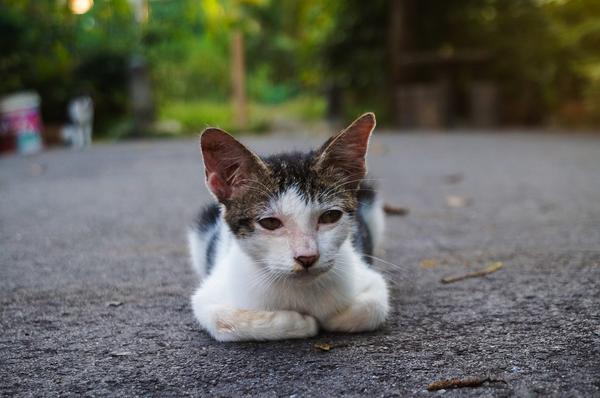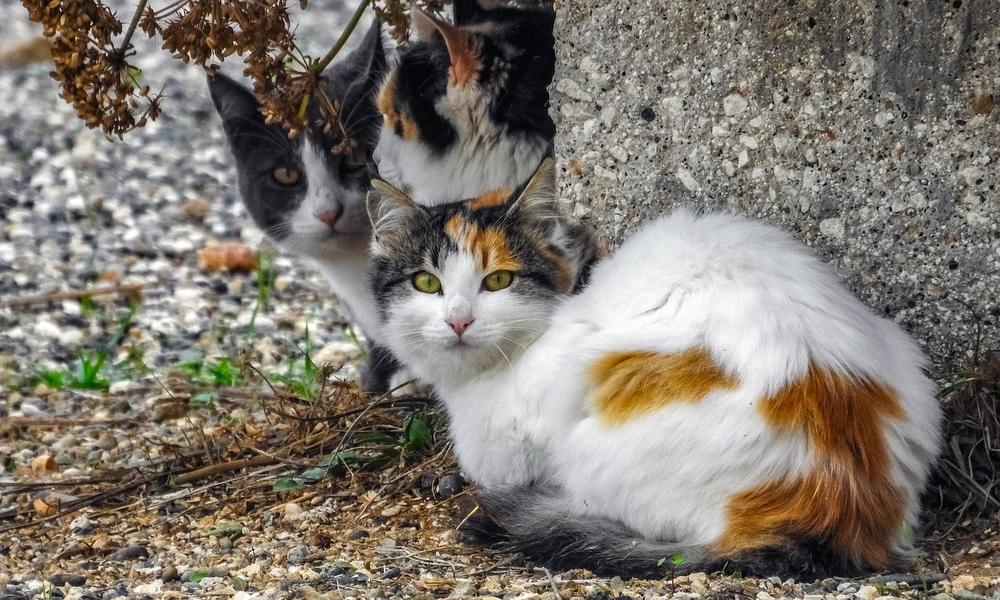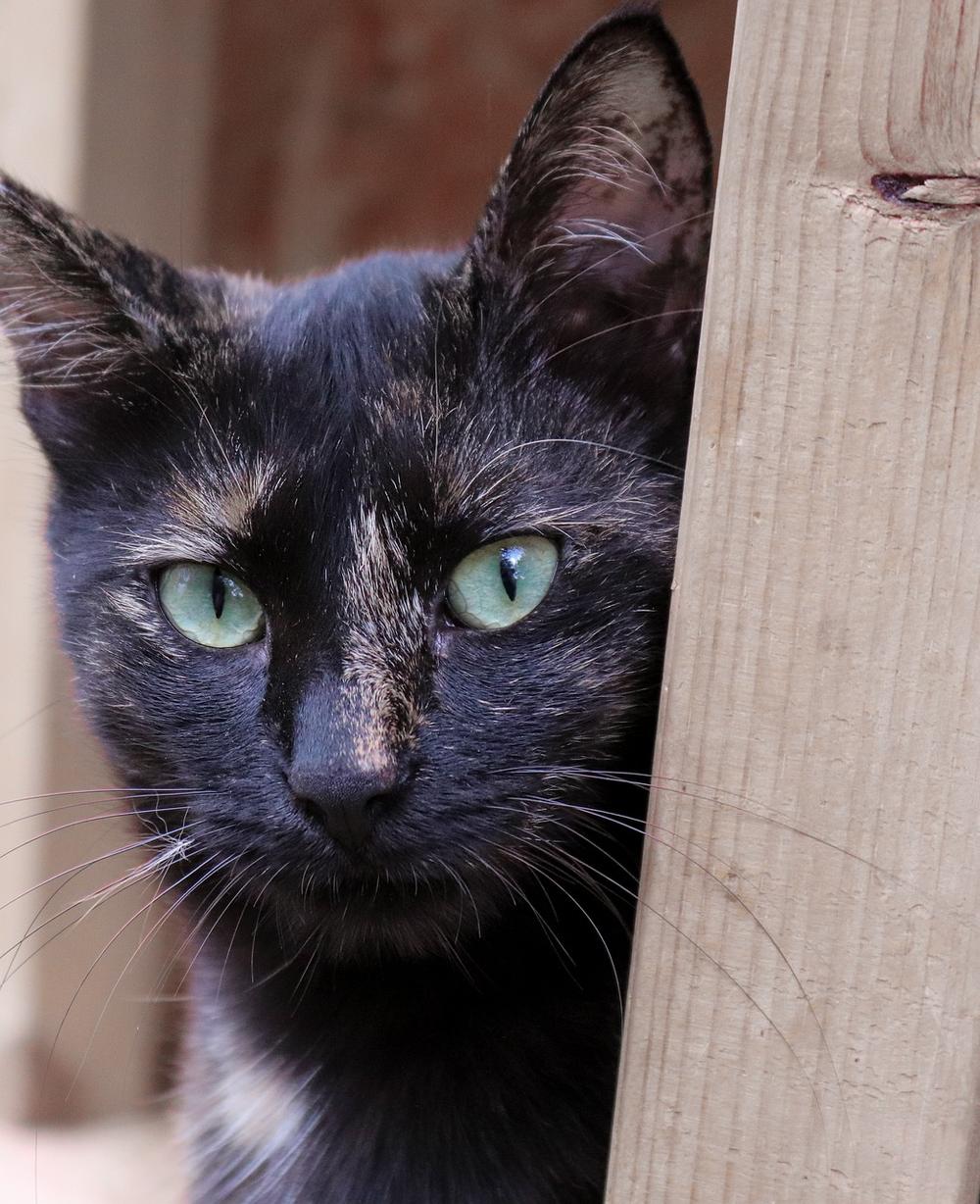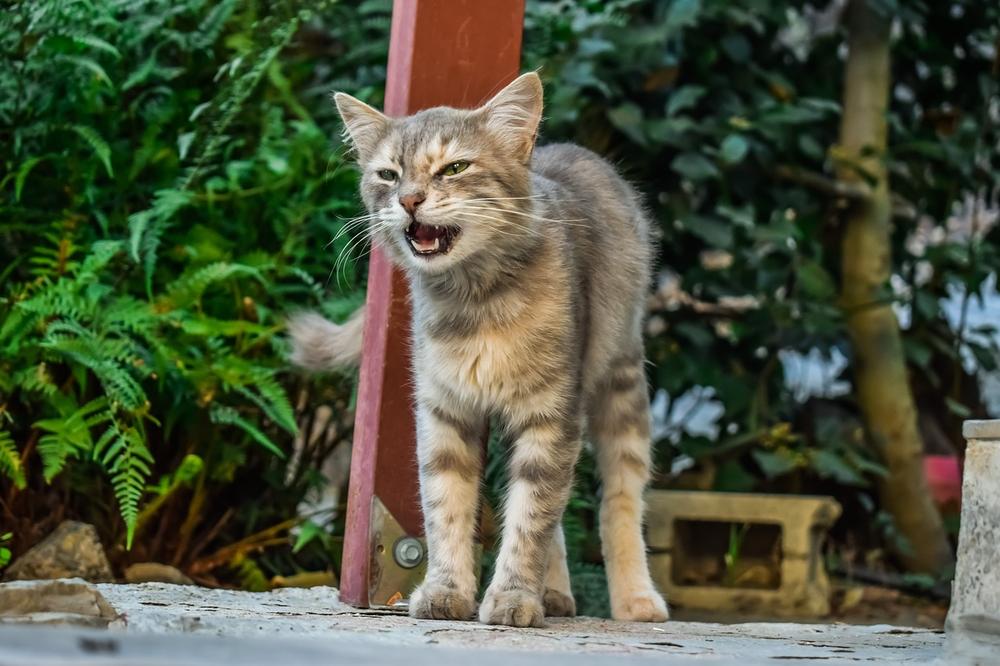Stray Cats Meowing LOUDLY at Night: What Should You Do?

Ever been startled awake by a stray cat's piercing meows in the dead of night?
It's enough to make your blood boil, your patience wear thin, and your dreams of a good night's sleep crumble to dust. 😡
But what if I told you there's more than just a jolted awakening at stake here?
What if I told you that these relentless meows could lead to a cataclysmic catastrophe for your feline friend?
Don't let anger and guilt consume you - I've got the solution you've been searching for.
Let's put an end to this nocturnal serenade, shall we?
Get ready to reclaim your peace and the safety of our stray cat friends.
Take action now!
Why Is a Stray Cat Meowing/Crying Loudly at Night?
Stray cats meow loudly at night due to stress and anxiety
You know, stray cats can often get really loud at night.
It's because they're feeling stressed and anxious in their unfamiliar surroundings.
Imagine being in a new place, not knowing anyone, feeling scared and uncomfortable. I bet it would be tough on you too.
Stray cats meow out of hunger, loneliness, and more
Another reason stray cats meow loudly at night is because they feel hungry and lonely.
Just think about it, if you didn't have regular meals or someone to keep you company, wouldn't you want to express your needs through vocalizations?

And it's not just hunger and loneliness - stray cats can meow if they are injured, sick, or simply want to go outside.
Their meows can also show that they are angry, upset, or bored.
Just put yourself in their paws, imagine having all these emotions bottled up inside and only being able to communicate through meowing!
Nighttime meowing is a part of cat behavior and communication
You see, stray cats meow at night for many other reasons too.
They meow to look for a mate, protect their territory, find food, and mark their turf. It's their way of talking to other cats and letting everyone know who they are.
Health problems can also contribute to excessive vocalization during the night. Conditions like kidney failure, thyroid issues, pain, dementia, hyperthyroidism, hypertension, or declining senses can lead to lots of meowing.
So, when you hear a stray cat making a fuss at night, remember that they're just trying to express themselves and navigate their world.
Main points I'll expand upon further down this article:
- Provide food, water, and shelter to support stray cats.
- Avoid sharing food bowls and litter boxes to prevent disease transmission.
- Create safe and secure shelters to alleviate fear and panic.
- Use motion-activated water sprinklers to deter stray cats.
- Provide mental and physical stimulation during the day to reduce nighttime meowing.
- Regularly feed stray cats to improve their health and happiness.
- Take stray cats to the vet for check-ups and address medical issues.
- Stray cats meow to communicate with humans, seeking attention or food.
- Socialized cats show signs of comfort around people, while unsocialized cats may avoid touch.
- Address the issue of stray cats through responsible pet ownership and trap-neuter-return programs.
And now that we understand why stray cats meow loudly at night, I want to share some practical solutions to help address this issue and provide these vulnerable felines with the care they need!
Effective Solutions for Dealing With Stray Cats Meowing Loudly at Night
Dealing with loud meowing stray cats at night can be tough. 😿
But don't worry, I've got some effective solutions for you:
- Give these kitties a regular feeding routine to stop their hunger-related meowing and make them feel secure.
- Don't forget to provide fresh water too, because dehydration can lead to excessive meowing.
- Make sure they have proper shelter and warmth, especially in bad weather.
- Avoid sharing food bowls or litter boxes between the stray cats to prevent diseases from spreading.
- Set up safe and secure shelters so they feel less scared and don't meow out of fear.
- To keep unwanted stray cats away, use motion-activated water sprinklers that'll deter them.
- During the day, give them mental and physical stimulation to fight boredom and reduce nighttime meowing.
- Regularly check their health and take them to the vet if needed, because medical issues could cause more meowing.
- By taking care of their basic needs like food, shelter, water, and veterinary care, you'll improve their overall well-being.
With these solutions, you'll help stray cats find comfort and lessen their loud meowing at night.
And lastly, if you're still struggling with your stray cat's behavior, I have the perfect resource for you.
Understanding why your cat is hiding in the closet can provide valuable insights into their emotions and needs.
That's why I highly recommend checking out my blog post Why Is My Cat Hiding in the Closet.
By delving into this guide, you'll gain a deeper understanding of your cat's behavior and discover helpful solutions to address their concerns.
Reasons Why a Stray Cat Meows at You
Stray cats meow at you for various reasons.
They want help with things like shelter, food, water, or medical attention.
Their loud meowing is their way of talking to you, and there are different reasons behind it.
Female strays may cry out when they need kittens but can't get to them or have lost them. On the other hand, male cats might excessively meow in response to female pheromones during mating season.

Some stray cats also meow to ask you for food or attention.
If you encounter a friendly stray, you should check if they have a microchip and think about reaching out to local shelters or rescues.
Cats that are comfortable around people will show signs of being socialized, while unsocialized cats might avoid touch.
Certain behaviors like gentle touches, raised tails, and relaxed posture could indicate some level of socialization. During mating season, both male and female cats make yowling sounds, with feral cats using loud yowls to keep intruders away.
And lastly, on cold nights, cats with thin fur may cry and moan outside houses because they're looking for warmth and help. 💬
How Does the Sound of Stray Cats Crying Affect the Community?
Stray cats meow loudly and continuously at night, disturbing your sleep and annoying those around you.
Their relentless noise not only disrupts individual sleep patterns but also impacts the entire community.
The constant cries of these feline intruders can be highly frustrating, causing multiple disruptions to your life.
Moreover, this noise pollution doesn't just affect humans (source); it stresses out nearby animals as well.
To tackle this problem, you should educate the community about responsible pet ownership.
Promoting measures such as neutering and spaying can effectively prevent issues caused by stray cats.
By taking action and spreading awareness, we can create a more peaceful and harmonious environment for everyone.
What Should I Do About the Feral Cats in My Neighborhood?

Managing neighborhoods with feral cats is no walk in the park, but don't fret, I've got some effective solutions for you:
- Get the community involved by organizing programs that trap-neuter-return those troublesome kitties. It'll help control their numbers and improve their health and behavior.
- Teach your neighbors not to feed unmanaged cat colonies. This helps prevent overbreeding and keeps that pesky cat population under control.
- Educate people about responsible pet ownership and discourage them from taking feral cats to shelters where euthanization is likely. Relocation should be a last resort.
- Reach out to local animal rescue organizations or shelters that specifically deal with stray cats. They have the know-how and resources to handle these hairy situations properly.
- Set up feeding programs and work together with shelters to ensure those stray cats receive the care they need without adding to the growing population problem.
- Ditch the night chorus of crying feral cats by getting involved in trap-neuter-return programs. It's a more effective way of tackling this issue.
- Team up with local government and neighborhood organizations to come up with long-term strategies for managing those sneaky stray cat populations.
Your neighborhood will not only become safer but you'll also be aiding the well-being of these roaming cats by adhering to these practical measures. 👍
And that wraps up today's article.
If you wish to read more of my useful articles, I recommend you check out some of these: Why Does Your Cat Hold Your Hand, Why Do Cats Hate Getting Their Nails Cut, Are Cats Scared of the Dark, Why Does My Cat Sit in the Bathtub, and Is Purring Involuntary in Cats
Talk soon,
-Sarah Davis